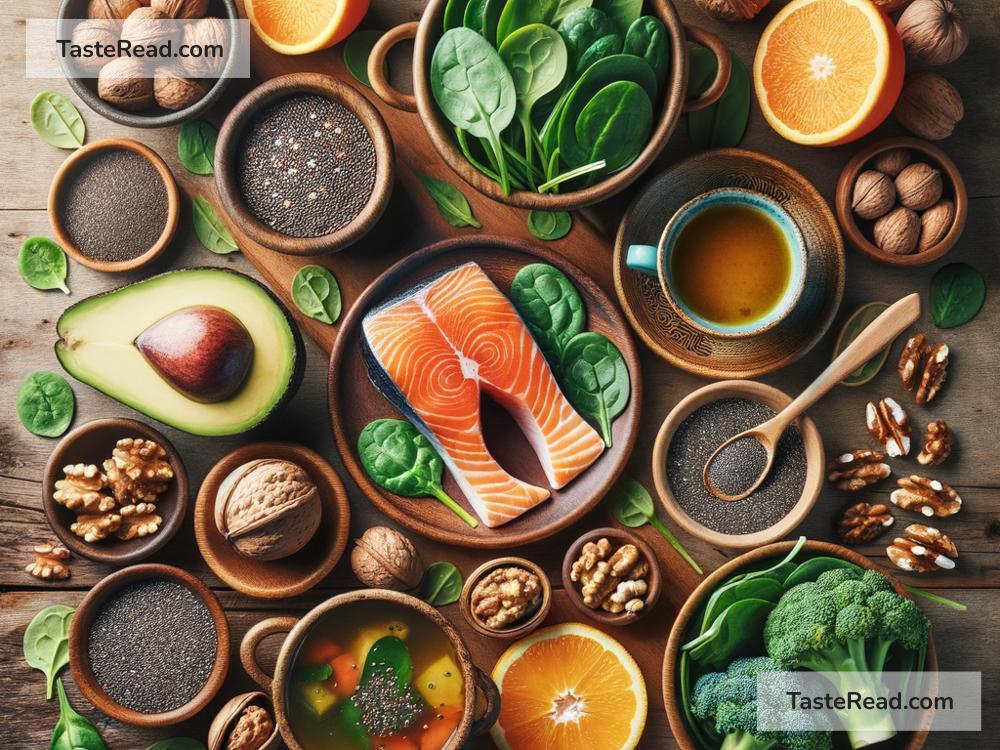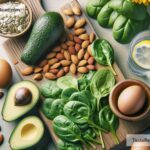Foods That Strengthen Ligaments: A Simple Guide to Better Joint Health
Our ligaments play an essential role in keeping our bodies strong and mobile. These tough bands of connective tissue connect bones and help stabilize joints so we can walk, run, jump, and enjoy daily activities without pain or injury. Unfortunately, ligaments can weaken due to overuse, aging, poor nutrition, or injuries, leaving us vulnerable to discomfort or limited mobility. The good news is that certain foods can strengthen ligaments and promote healthy connective tissue.
In this blog, we’ll explore simple, delicious, and nutritious foods that can help you improve your ligament health. Whether you’re recovering from an injury, looking to prevent one, or just want to support your overall joint health, these foods deserve a spot on your plate!
1. Foods Rich in Collagen
Collagen is a vital protein for connective tissues such as ligaments, tendons, and cartilage. It serves as a building block for maintaining the strength and flexibility of your ligaments.
What to Eat:
- Bone Broth: Boiling bones produces a nutrient-rich broth packed with collagen and amino acids. Sip it warm or use it as a base for soups and stews.
- Chicken Skin: While you shouldn’t overeat the fatty part, chicken skin is a natural source of collagen.
- Gelatin: Found in jello and similar desserts, gelatin is a processed form of collagen that can benefit ligament health.
2. Foods Rich in Vitamin C
Vitamin C plays a key role in collagen production, making it essential for strong and elastic ligaments. It also helps prevent inflammation and supports the healing process if you’ve been injured.
What to Eat:
- Citrus Fruits: Oranges, lemons, limes, and grapefruits are famous for their vitamin C content.
- Strawberries: These sweet berries not only taste great but are loaded with vitamin C.
- Bell Peppers: Both the red and yellow varieties are excellent sources of vitamin C.
- Kiwi: This small fruit is surprisingly packed with vitamin C, as well as other beneficial nutrients.
3. Omega-3 Fatty Acids
Omega-3 fatty acids reduce inflammation and support ligament health. Chronic inflammation can weaken ligaments over time, so adding omega-3s to your diet can help keep your joints healthy and pain-free.
What to Eat:
- Salmon: This fatty fish is one of the best sources of omega-3s.
- Chia Seeds: Sprinkle chia seeds on oatmeal, yogurt, or salads for a quick omega-3 boost.
- Walnuts: These heart-healthy nuts are also great for your ligaments.
- Flaxseeds: Ground flaxseeds can be added to smoothies or baked goods for extra nutrition.
4. Foods Rich in Zinc
Zinc is important for tissue repair and promotes protein synthesis, both of which are crucial for ligament recovery and strengthening after injury.
What to Eat:
- Pumpkin Seeds: These tiny seeds are packed with zinc and make a great snack.
- Seafood: Oysters, crab, and shrimp are rich in zinc, which can benefit connective tissue health.
- Legumes: Lentils, chickpeas, and beans contain zinc alongside other nutrients that support ligament health.
5. Foods High in Magnesium
Magnesium helps regulate muscle function and supports the structure of connective tissue. A diet deficient in magnesium can lead to weaker ligaments and an increased risk of injury.
What to Eat:
- Dark Leafy Greens: Spinach and kale are rich in magnesium and other vitamins.
- Avocado: This creamy fruit is not only delicious but also packed with magnesium.
- Almonds and Cashews: Snack on a handful of nuts to support ligament health.
- Bananas: Known for their potassium, bananas also offer magnesium to your body.
6. Protein-Packed Foods
Protein is necessary for repairing damaged tissues and building new ligaments. Make sure your diet includes plenty of high-quality protein sources.
What to Eat:
- Eggs: Affordable and versatile, eggs are a great source of protein and amino acids.
- Lean Meat: Chicken, turkey, and lean cuts of beef are excellent protein choices.
- Tofu and Tempeh: These plant-based proteins are perfect for vegetarians or vegans.
7. Anti-inflammatory Foods
Inflammation can slow down healing and weaken ligaments over time. Incorporating anti-inflammatory foods into your diet can help protect your joints and connective tissue.
What to Eat:
- Turmeric: This golden spice contains curcumin, which has powerful anti-inflammatory properties.
- Ginger: Use fresh ginger in teas, stir-fries, or soups to support ligament health.
- Berries: Blueberries and raspberries contain antioxidants that fight inflammation.
- Olive Oil: Use extra virgin olive oil for cooking to add anti-inflammatory benefits to your meals.
Tips for a Ligament-Strengthening Diet
- Stay hydrated! Dehydration can reduce ligament flexibility and increase your risk of injury.
- Avoid processed foods that are high in sugar and trans fats, as they contribute to inflammation.
- Combine a healthy diet with regular exercise to keep joints and ligaments strong.
- Consider taking supplements like collagen powder or fish oil if your diet lacks certain nutrients.
Final Thoughts
What you eat plays a significant role in the health of your ligaments and joints. Incorporating foods rich in collagen, vitamin C, omega-3s, zinc, magnesium, and protein will help promote stronger and more resilient ligaments. By making smart food choices, you can prevent injuries, recover faster, and enjoy better mobility for years to come.
Take care of your ligaments—they’re what keep you moving every day!


